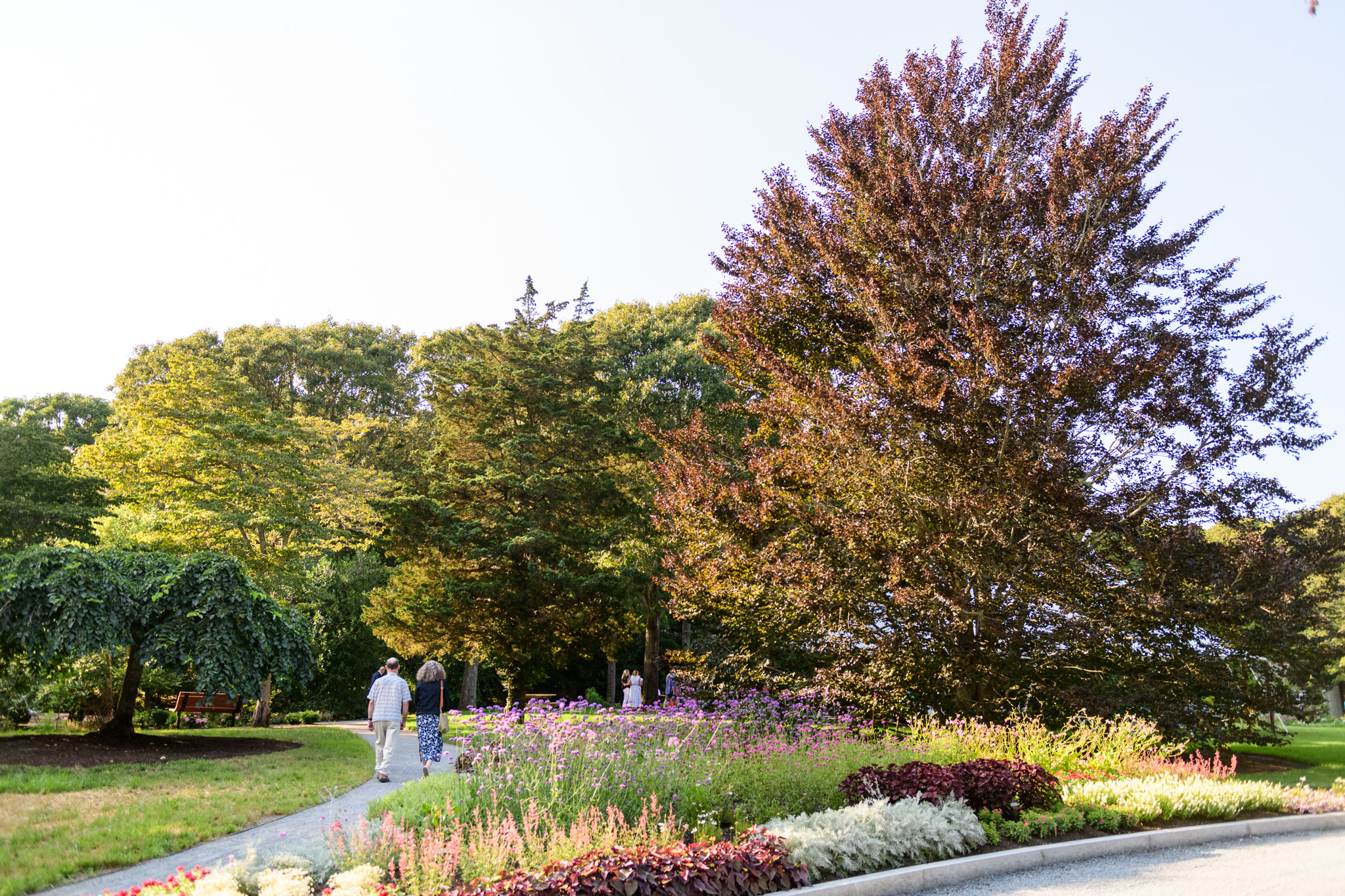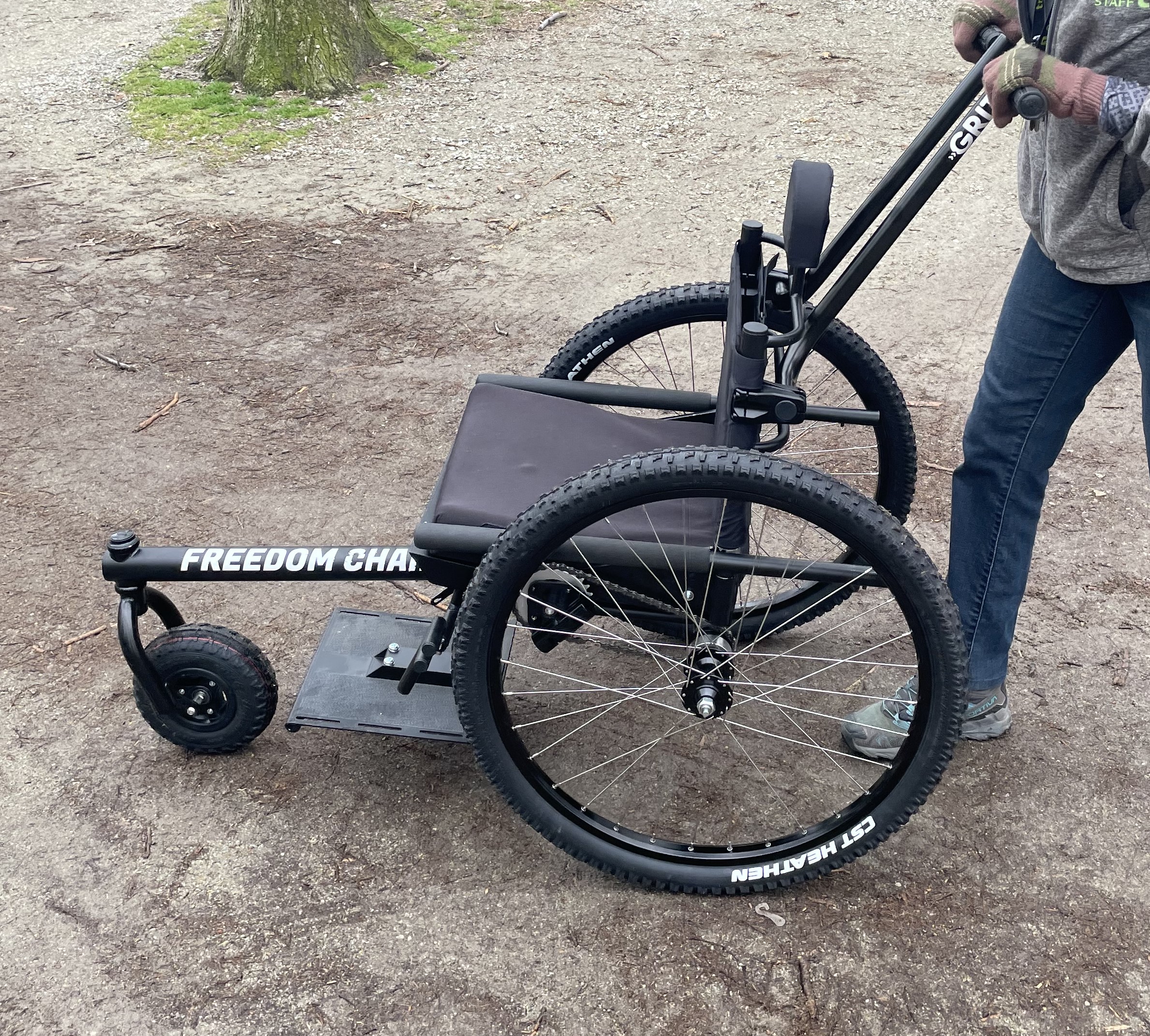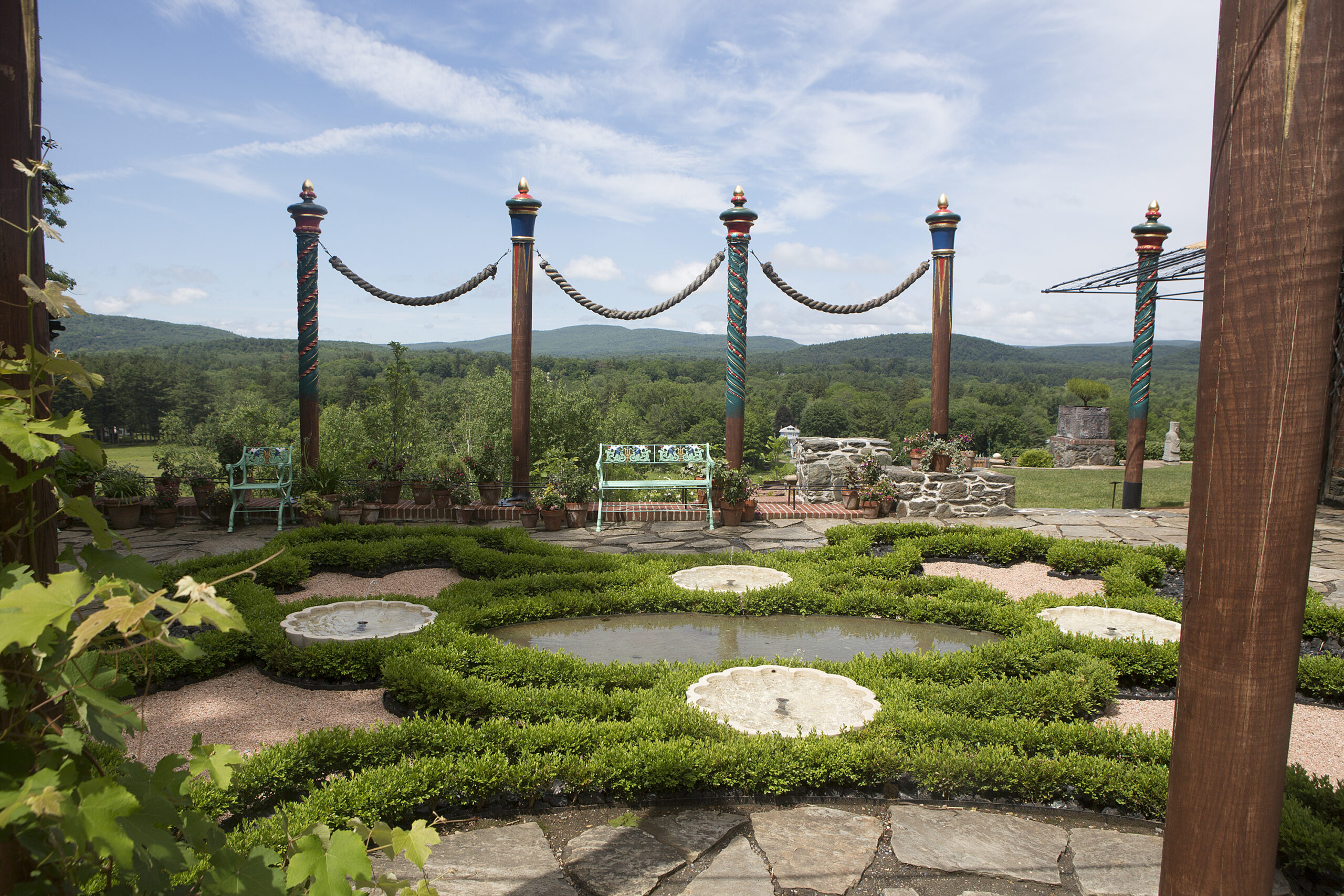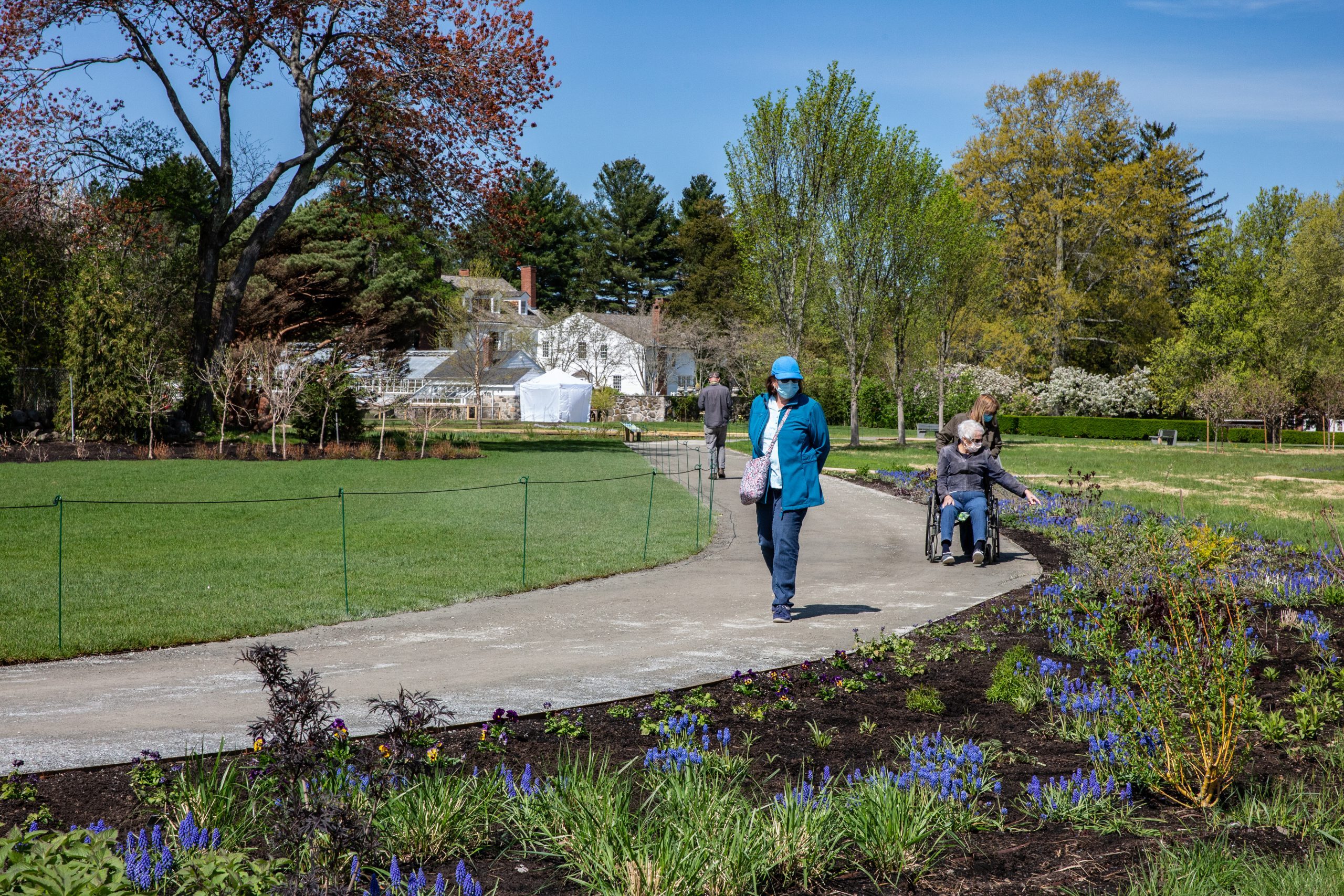By Kyle Davi, Trustees Staff
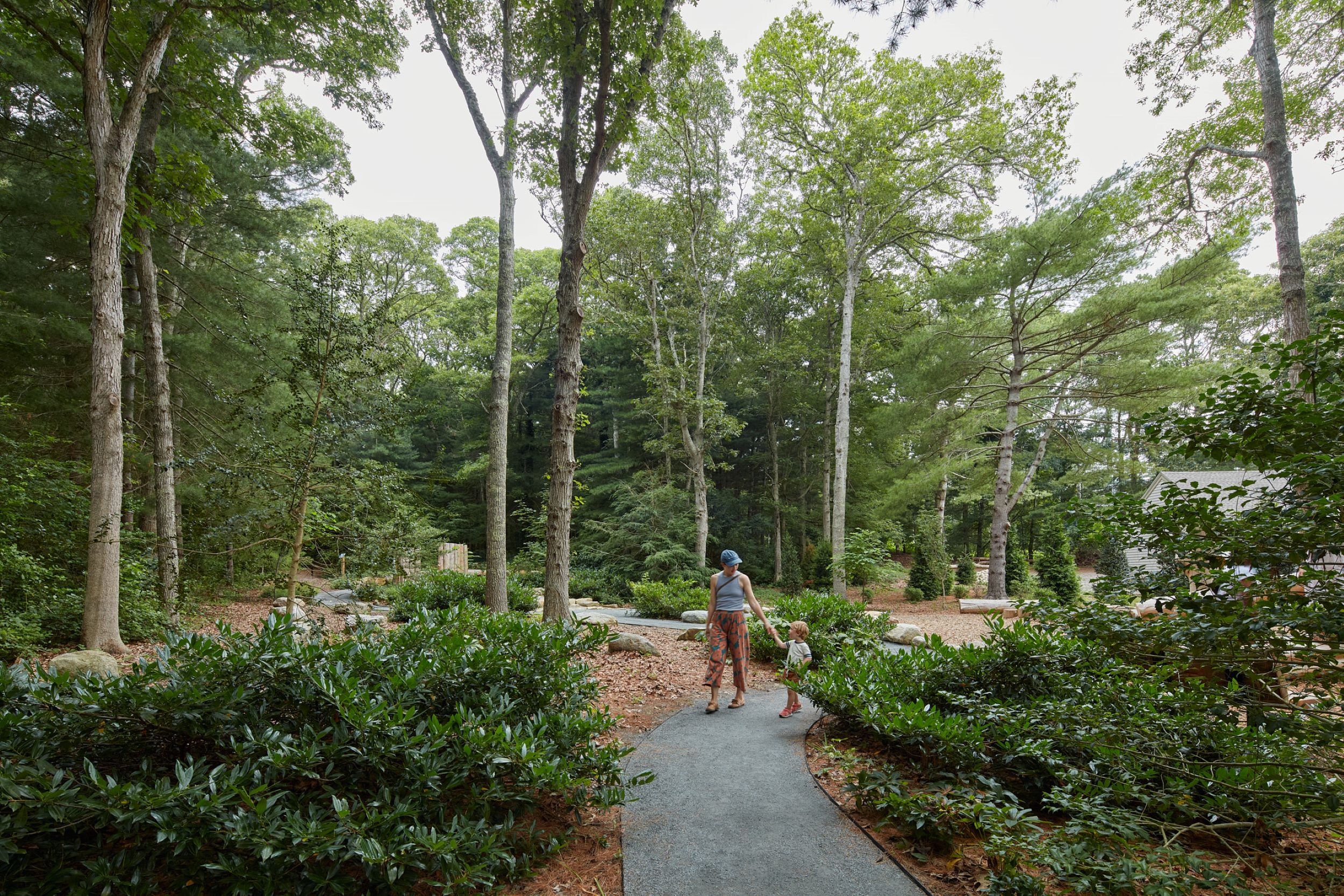
Photo by Jane Messinger. Courtesy of Lu — La Studio.
At the heart of the Trustees mission is a powerful belief: the landscapes the organization protects are “for everyone.” But what does this promise mean when some special places are still out of reach for certain communities?
“We have been trying to reduce the barriers people face when accessing our properties—and nature in general—for quite some time,” says Kristen Swanberg, Managing Director of Education and Engagement for The Trustees. “But there’s a larger demand than what we can meet at the moment, so we’re looking to grow our work in this area.”
Various obstacles can get in the way of enjoying the outdoors, including physical barriers for people with disabilities, financial barriers for individuals with limited resources, and even age barriers for parents and guardians with younger children. All three of these gaps are currently being addressed by The Trustees, but there is still more work to do.
For Children & Parents
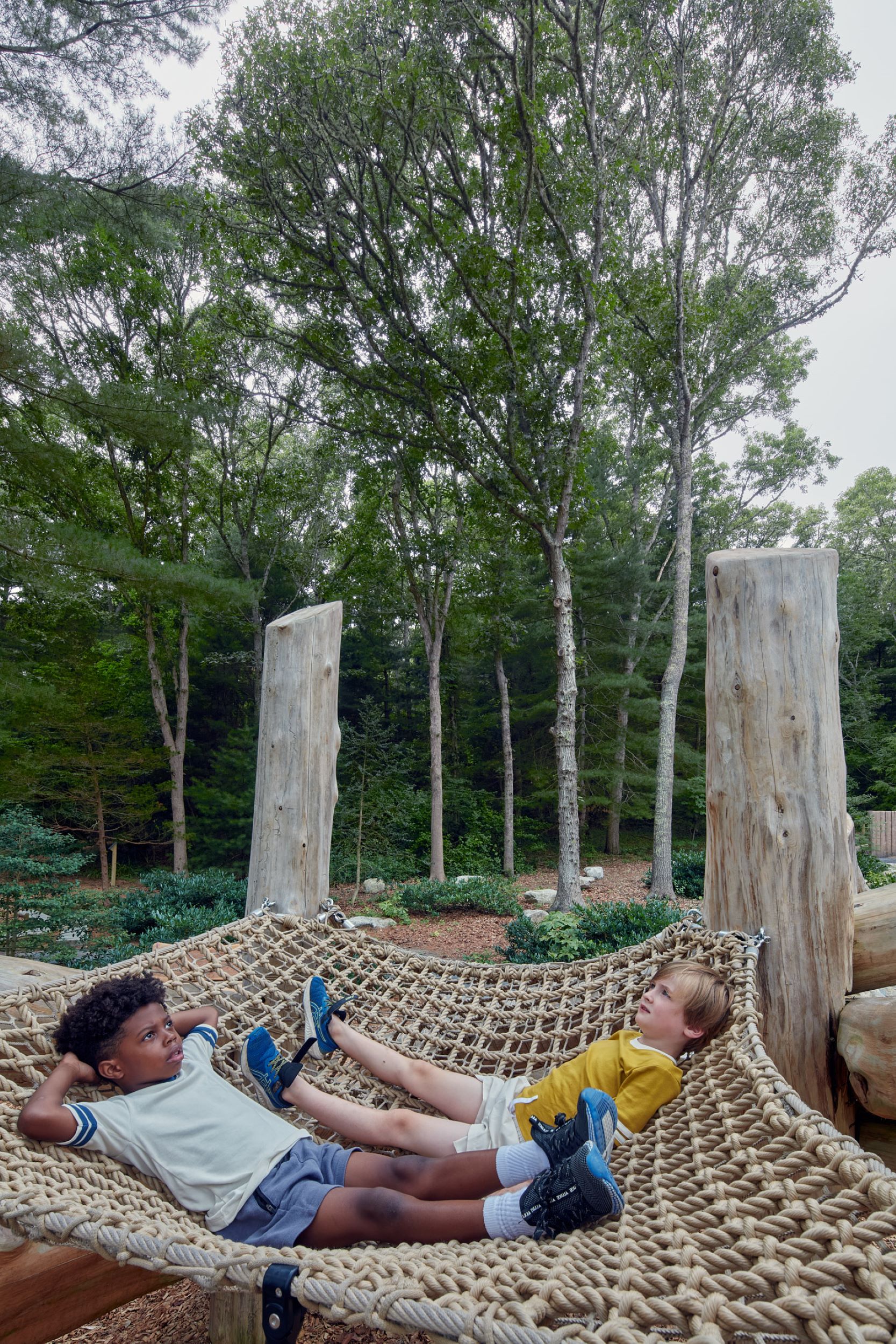 Finding engaging outdoor activities for younger kids often requires extensive planning, long travel times, or complicated logistics. Yet, being outside and interacting in a meaningful way with nature can be one of the most beneficial experiences in a child’s development.
Finding engaging outdoor activities for younger kids often requires extensive planning, long travel times, or complicated logistics. Yet, being outside and interacting in a meaningful way with nature can be one of the most beneficial experiences in a child’s development.
“Play spaces like the one at Armstrong-Kelley Park on the Cape are so important,” says Swanberg. “Not only is it convenient for parents and guardians, but it provides a genuinely fun and enriching time for children.”
Made from fallen trees and other natural materials found on site at Armstrong-Kelley Park, the space is designed to appear big and wonderful to kids. They can climb a tangle of trees with a net hammock and rope ladder, balance on wooden steppers, cross a dried riverbed embedded with geodes, spot fossils pressed into stepping stones, and dash into a spiral fort with a boulder scramble.
It’s also designed with caregivers in mind. An accessible pathway curves through the area with ample benches to sit on that provide sightlines of the key play structures. Each element is crafted with a wide age range in mind, so parents and guardians can sit back and feel confident letting their children explore on their own.
“The space meets children at the developmental age they’re at, offering a wide variety of ages access to nature on their own terms,” says Sara Brunelle, Studio Director at lu — la Studio, who designed Armstrong-Kelley Park’s play space. “When that happens, an empathy for nature is created that persists for life… they essentially become future stewards of the land.”
To learn more and plan your visit to family-friendly locations across the state, visit TheTrustees.org/FamilySpots
For People with Disabilities
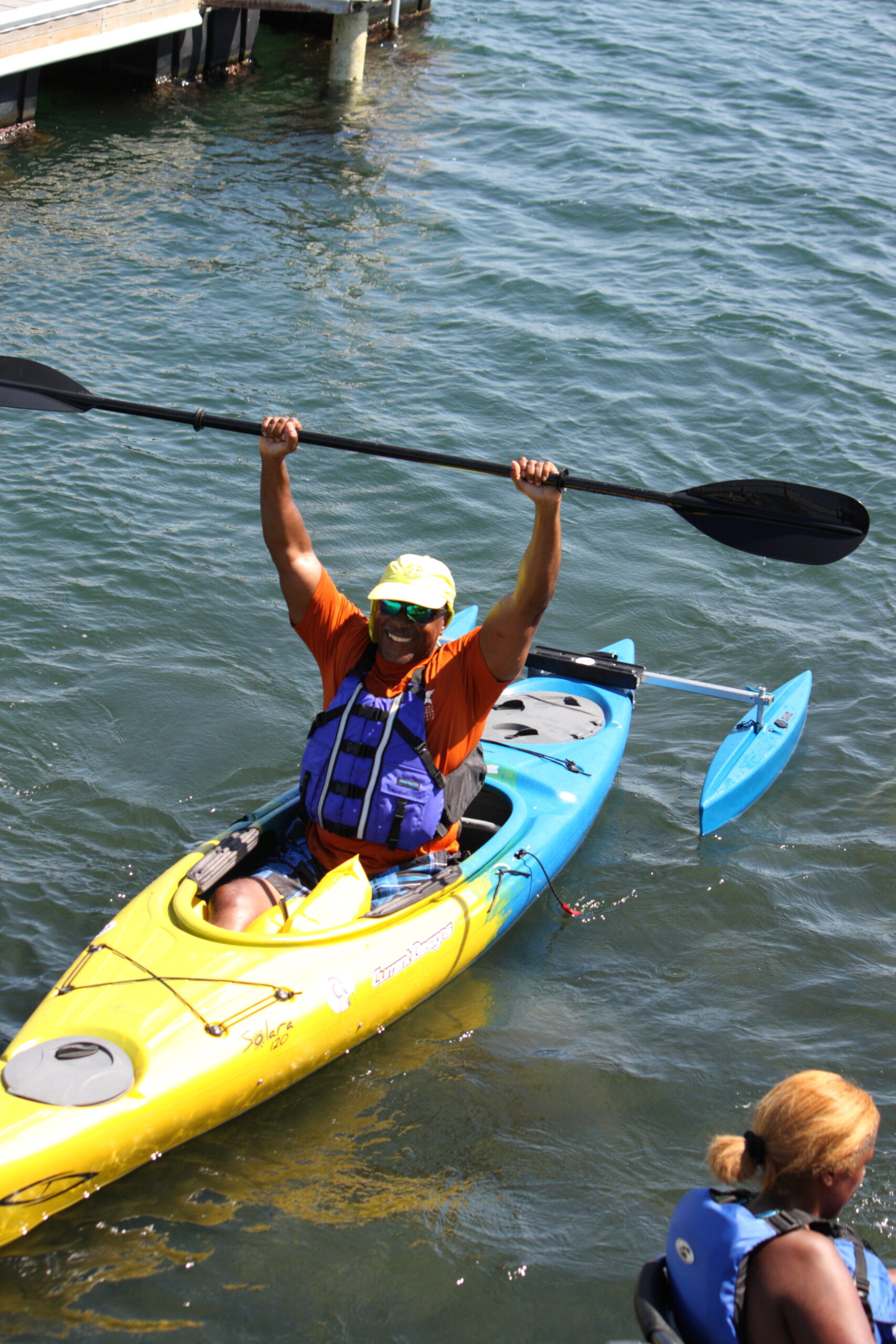 Time spent outside—whether it’s strolling through a park, sitting by the ocean, or soaking in a scenic view—can significantly improve an individual’s mental health. However, those with physical disabilities can face a multitude of challenges when trying to access these benefits not only due to inaccessibility of the natural terrain but a lack of adaptive resources too.
Time spent outside—whether it’s strolling through a park, sitting by the ocean, or soaking in a scenic view—can significantly improve an individual’s mental health. However, those with physical disabilities can face a multitude of challenges when trying to access these benefits not only due to inaccessibility of the natural terrain but a lack of adaptive resources too.
“It’s not always feasible to build trails that meet universal accessibility requirements,” says Swanberg. “Instead, you can provide the adaptive equipment that allows people to fully enjoy the space that’s already there.”
One such piece of equipment is a fully accessible kayak, available for the first time this year at Long Point Wildlife Refuge thanks to support from the Martha’s Vineyard Community Foundation. Individuals with disabilities will now be able to safely enter the kayak and paddle on their own thanks to a transfer bench, adaptive paddle, stabilizing floats, and enhanced seating system designed by Creating Ability.
“With this new accessible kayaking equipment, we can improve the experience for many community members who historically have had limited access to the water due to physical disabilities,” says Molly Peach Mayhew, Islands Education Manager for The Trustees. “I’m excited to utilize this equipment with our community partners, residents, and visitors through our educational and rental programs at Long Point this summer.”
Various other accessibility equipment items are available at several different Trustees sites. The all-terrain GRIT Freedom Chair is now permanently available at World’s End in Hingham after a pilot program last year. Plus, a new swimming beach wheelchair has been added to Wasque on Chappaquiddick Island this summer—thanks to funding from Slough Farm Fund—to accompany the waterproof beach wheelchairs that have been available at both Long Point on the Vineyard and Crane Beach in Ipswich for years.
“We’re always looking for new ways to allow everyone access to our natural spaces, and adaptive equipment has proven to be a great solution to overcome barriers,” says Swanberg.
To learn more about accessibility at The Trustees, visit TheTrustees.org/Accessibility
For the Cost-Conscious
 While more than 100 Trustees special places across the state are open to the public for free, a few locations have admission or parking fees. Programming such as guided hikes, workshops, and seasonal celebrations may also require a ticket purchase to participate. These costs can hinder individuals with limited resources from enjoying many of the most popular Trustees locations and events.
While more than 100 Trustees special places across the state are open to the public for free, a few locations have admission or parking fees. Programming such as guided hikes, workshops, and seasonal celebrations may also require a ticket purchase to participate. These costs can hinder individuals with limited resources from enjoying many of the most popular Trustees locations and events.
“Not everyone can afford to visit these places and take in their beauty, history, and fun activities,” says Swanberg. “That’s why we partner with government assistance programs, community groups, nonprofits, libraries, colleges, and universities to directly address such hurdles.”
Three programs—Cards to Culture, GO (Get Outside) Passes, and the Wonderfund Access Card—grant free or reduced admission for at least two adults and two children under 18 to many Trustees locations. Cards to Culture is specifically for Massachusetts residents who receive EBT, SNAP, WIC, or ConnectorCare benefits, while the Wonderfund Access Card is available to Department of Children & Families (DCF) foster families. However, GO Passes can be checked out by any community member from the many participating libraries, colleges, and universities throughout the Commonwealth.
Recently, The Trustees also partnered with community groups to distribute complimentary tickets to seasonal events—like Halloween on the Hill in October at Long Hill in Beverly and Winterlights in December at Naumkeag in Stockbridge and the Eleanor Cabot Bradley Estate in Canton—to local residents who otherwise may not be able to afford to attend.
“This initiative lowers economic barriers and allows more people to experience the joy and beauty of the seasons at our properties,” says Lynn Murray, Director of DBIE Programs & Partnerships for The Trustees.
To learn more about all free and reduced admission opportunities, visit TheTrustees.org/DiscountAdmissions
The Trustees is continually seeking new and creative ways to break down the barriers—of any kind—that limit access to the outdoors. The organization is fully and deeply committed to its promise of making these special places “for everyone.”

 Finding engaging outdoor activities for younger kids often requires extensive planning, long travel times, or complicated logistics. Yet, being outside and interacting in a meaningful way with nature can be one of the most beneficial experiences in a child’s development.
Finding engaging outdoor activities for younger kids often requires extensive planning, long travel times, or complicated logistics. Yet, being outside and interacting in a meaningful way with nature can be one of the most beneficial experiences in a child’s development. Time spent outside—whether it’s strolling through a park, sitting by the ocean, or soaking in a scenic view—can significantly improve an individual’s mental health. However, those with physical disabilities can face a multitude of challenges when trying to access these benefits not only due to inaccessibility of the natural terrain but a lack of adaptive resources too.
Time spent outside—whether it’s strolling through a park, sitting by the ocean, or soaking in a scenic view—can significantly improve an individual’s mental health. However, those with physical disabilities can face a multitude of challenges when trying to access these benefits not only due to inaccessibility of the natural terrain but a lack of adaptive resources too. While more than 100 Trustees special places across the state are open to the public for free, a few locations have admission or parking fees. Programming such as guided hikes, workshops, and seasonal celebrations may also require a ticket purchase to participate. These costs can hinder individuals with limited resources from enjoying many of the most popular Trustees locations and events.
While more than 100 Trustees special places across the state are open to the public for free, a few locations have admission or parking fees. Programming such as guided hikes, workshops, and seasonal celebrations may also require a ticket purchase to participate. These costs can hinder individuals with limited resources from enjoying many of the most popular Trustees locations and events.